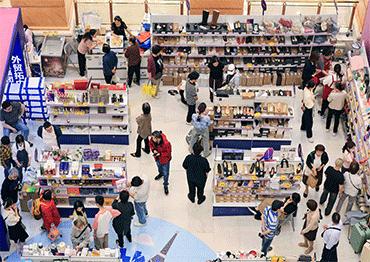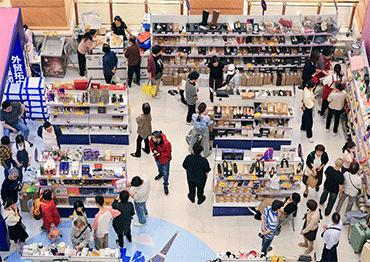Chen Han, 26, is a second-generation entrepreneur who took over Qilong Toys, a company founded by his father in 2013. Located in Shantou, Guangdong Province, his factory spans 30,000 square meters and exports about half of its products, mostly to the US.
Chen told NewsChina that when the US upped tariffs on Chinese goods in January, his US clients started pushing for lower prices to offset them, before the firm suspended shipments in April. Chen said that the company has about 1 million yuan (US$138,600) worth of goods stockpiled in storage, which has prompted him to shift his focus to the domestic market.
But Chen said this pivot is quite difficult for the toy industry given the different cultures between China and the US. “Foreign kids love toys related to unicorns and dinosaurs, but Chinese kids are not really into them,” Chen told NewsChina, “they like cartoon characters.”
The most challenging part, according to Chen, is that exporters have to deal with much smaller and more fragmented orders than in foreign trade. “Given these piecemeal orders, the growth of domestic sales is very slow,” Chen added.
Chu Qinqin, the executive of Kala Pet Products, based in Hangzhou, capital of Zhejiang Province, faces the same problem. “Overseas customers typically place bulk orders in tens of thousands of units at a time, or at least several thousand. But in the domestic market, an order of a few thousand is already considered big,” Chu said.
She told NewsChina that with the US market accounting for one-third of its business, the company is particularly vulnerable to the tariffs, and that all their US orders are on hold.
As Chu now attempts to increase the company’s domestic sales, she has to carefully manage its inventory to adapt. Smaller domestic orders drive up both production and labor costs, resulting in reduced profit margins.
“With fierce competition [in the domestic market], everyone fears being stuck with excess inventory if competitors slash prices or flood the market, and the result is that the orders become smaller and smaller,” Chu said.
To handle these small orders, which often involve selling to individual consumers, establishing an e-commerce team has become a necessity.
Other than the problem of small orders, many export-oriented goods do not appeal to Chinese consumers. MSD Glass, a manufacturer of glassware based in Hebei Province, faces such a problem. Li Fei, an executive with MSD Glass, told NewsChina that the company was once a major supplier to Starbucks, but due to the increased geopolitical tensions, Starbucks has terminated its partnership, forcing the company to try and attract domestic consumers. “The problem is that domestic consumers prefer ceramics over glassware,” Li said, “A common perception is that glassware is more fragile, which is untrue.”
Li said that the company designed products such as a glass noodle cup and a glass hotpot to adapt to domestic eating habits, with only a lukewarm response.
“We made some uniquely designed products and we have been actively investing in livestreaming and short videos, which requires significant manpower and effort,” Li said.

 Old Version
Old Version
